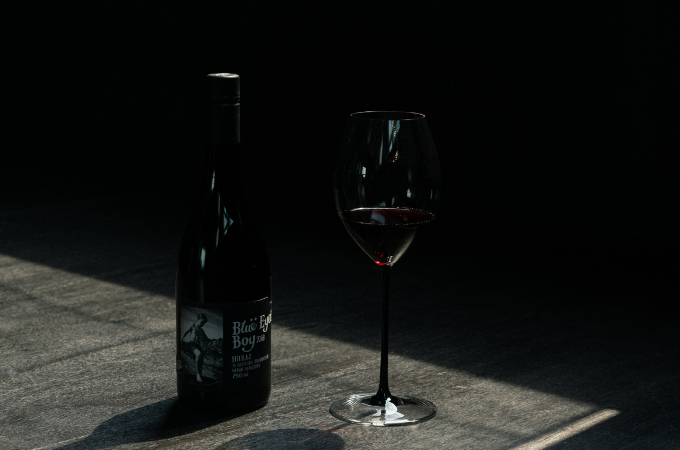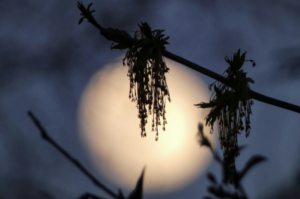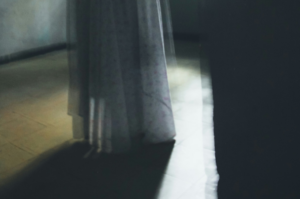
I had never seen Romeo so worked up about anything. If it hadn’t been for our week of tragedy, we would probably not have crossed this boundary. Our conversations were usually made up of quick catch-up sessions during his lunch break or slightly longer ones at a nearby bar.
He was the first friend I made when I moved here six months ago, even though I was surrounded by hundreds of people each week at the university, people who, like me, could spend hours talking about the ontological differences between novels and short stories and the mystical nature of line breaks. Like me, they had come there to do nothing but that for ten months. It was so typical of me to fall for the barista at my local coffee shop instead, but he was the first person I had met from back home.
He is straight acting to the point of being banal. Except for all the things that make him so damn compelling. For one thing, he reminds me of you. Perhaps not as tall, and he’s not an unrepentant drunk like you, or a womaniser, but you both have a way of occupying a room. I’m not sure how to explain it. But I’ve seen the way you both respond to children. You become transformed into little boys yourselves. Your voices soften and you bend down to bring yourselves closer to their level. I hate to say it but to me it shows what a man can be and how little they have to do to be disarming, and the effects are life-long. I wonder how you’d feel about being compared to a Nigerian, being the proud Xhosa man that you are.
“I have always thought of myself as a citizen of the world but now I don’t know,” he said and picked up the glass of red wine from the coffee table where it had been left unattended for several minutes. “How can I be a citizen of the world when so many places don’t welcome me… us? Not even here, not even in the free world,” his words were beginning to slur after this third glass. He paused, with a shrug of his shoulders and a genuine puzzlement in his eyes. Maybe he wanted me to respond but I didn’t want to interrupt the spectacle of him. I was resting my chin on my knees, looking directly at him. It was a relief to sit back and listen for once. Romeo was usually the one listening to my tirades about missing home and my frustrations with the research for my novel. This was our most intimate interaction yet. We both needed it after the past week.
I had just heard of a boy who was killed near my mother’s house in Delft. Apparently, men in the area had been teasing him for a while, but this time he hit back. I saw a picture of him online. He reminded me of myself when I was that age. A young, petite sissy, experimenting with women’s clothing and maybe a touch of makeup, first lip gloss, then a dusting of foundation. I could imagine how he felt on the day they killed him, the years of anger and humiliation having built up, and then finally feeling bold enough to fire back. It was almost always the same when I was a teenager growing up in Eerste River. You’re walking down the street, just minding your own business, on your way to the corner shop to buy a loaf of bread for your mother, recalling your day at school, your maths or English homework that’s due the next day, and then one of the skollies standing on the stoep of the shop intrudes in your world, “Ek sê, oulik. Is jy manlik of vroulik?” Or you hear him whispering to his friend next to him, “Hoor net nou wat sê ek vir die bunny,” and they cackle like two thieves hatching a plan to make a score. You’re not only the source of their entertainment, you’re somehow also not deemed capable of basic human functions, like hearing or language. It happens to you a lot. At school, on the train, in the taxi, at the library when you approach the counter to enquire about a book, or when you make a phone call, and someone answers, “Yes, ma’am.” But it always catches you off-guard—always—this act of being called out of your name.
The day after the youngster’s murder, we heard about a shooting at a gay night club in Orlando. Romeo and I were far away in Boston, but he told me that three of his friends were among the people who were injured. They had gone there on holiday. I spent several tense hours with him at the bar, while he waited for news about his friends. When he finally heard that they were all fine, he said, “Come. I’ve got a bottle of wine at home. Let’s go.” He lived a train ride away in Hyde Park, but neither of us was in a state to walk to the station, so we decided to take an Uber. His studio was in the basement of an old couple’s house in the suburbs. It was a neat cottage whose bones looked a hundred years old, but immaculately renovated with sparkling-white cladding and black trim along its pitched roof. We crept in through the kitchen door and down the stairs. It felt like a storage room down there, stuffed with boxes, brooms, cleaning agents and all sorts of debris. But the tiny space was a refuge from the noise and crowds of the city outside, and the news we had just learnt.
He told me the shooting reminded him of why he had left home in such a hurry five years ago. A friend of his was killed by a group of thugs in Port Harcourt, who had the nerve to go bragging about their crime in the neighbourhood. He didn’t go into detail but I could tell that it must have been brutal for him to leave home with just a bag of clothing and not much else. I also suspected that the friend meant more to him than he let on. But I didn’t want to pry, so I allowed him to drip-feed the information at his own pace. Just like now.
“Maybe I’m an illegal alien of the world,” he sighed. At first, I thought he was joking but his voice was flat and there was no sign of the usual twitch in his cheek when he was being ironic. The glass was returned to the table, untouched by his lips. “Maybe that’s our one service to humanity… to be a common enemy,” he said and threw his head back against the couch and scoffed. “What if we didn’t exist?” he asked lazily from his supine position, his eyes fixed on the ceiling.
“We already know,” I said reluctantly, not wanting to break the spell.
He turned his head slowly towards me, with an expression that said, “Care to expand?”
I cleared my throat, preparing to deliver the kind of speech that every South African gay with a modicum of training – and years – has lying in wait for the right moment. “Well, since they say we don’t exist, that being gay is a lifestyle choice, unnatural, and ‘un-African…’” I timed the eye roll with the air quotes, “…we already know what a world without queers looks like. It looks like what we have now… a continent stuck in the medieval age, and we’ll probably stay there forever.”
“Really?” he exhaled through his teeth. “You are very cynical.”
“Honey, you forget where I’m from. I know a thing or two about struggle movements. We don’t stand a chance.”
“I think you are being too pessimistic, and you’re ignoring the facts. Many African countries have LGBT rights now and there’s a new generation of activists that are rising up.”
“True, but I’m telling you, they don’t stand a chance. Because if those grandpas that are currently ruling us won’t even listen to their straight kids when they are fighting for their rights, why would they listen to a bunch of queers?”
“So, what do you think would happen tomorrow if our leaders woke up and found that we were all missing or dead?”
“I think they’d declare a special national holiday.”
“What’s the solution, then? How do we get them to respect us?”
“I’m not sure about that. But if we want equal rights, we have to follow their example and revolt, just like they did to gain independence. We need to take up arms.
“Because clearly the polite activist route is not working. They just keep intensifying their onslaught on us. And, in a weird way, you can’t even take it personally. It’s like they’ve become so accustomed to bloodshed and deprivation that they don’t see anything wrong with consigning hundreds of thousands of their own people to such a life.”
He went quiet again, and I tried to read his thoughts and wondered what his life had been like back home. He was about to go to university before he left, he told me, to study engineering. He tried to pursue those ambitions in the US but tuition was hard to come by working the minimum-wage jobs he managed to get here. He didn’t say it, but after so many years, I suspected that he was close to giving up. I wondered if he ever missed home, given how dismissive he was whenever I complained of being homesick. I talked about my life in SA at every opportunity. In fact, when I wasn’t talking his ear off about my grand publishing dreams, I was devising schemes for him to visit me when I returned to Cape Town. But he never seemed too interested in discussing his former life. All I knew about it was that he was the eldest of three sons and that his parents were both teachers. I didn’t even know their names, or his last name, for that matter.
When I mentioned my longing for home once, he responded, “What have you got there that you haven’t got here?”
“Everything,” I told him, mildly offended.
“So, why did you come here?”
“For practical reasons,” I countered, “as you well know. But none of the reasons I came here for can replace the people I left back home.”
He paused and seemed more wounded than I had been by his comment. “They’ll still be waiting for you when you get home,” he said, his hand reaching out for mine.
As I took him in now, I remembered reading a short story about a Nigerian woman who also fled to the US to find safety and prosperity. She recalled the lover she had left behind in Nigeria. How she longed for her and dreamed of her homeland’s rich red soil. I wondered what Romeo missed about home and if he ever dreamed about any of the people and places that he had to abandon so fast. The feint vein in his temple pulsated ever so delicately. There was something so opulent about him, even in this state. Every component was so fully contained, with something to show off. Not just the surface of it, but the stuff beneath. Whether he was excited or dejected, he had the same sparkle in his eyes. His back and shoulders were a mountain range, with a variety of textures, peaks and valleys, the ridge of his spine, prominent beneath his clothes. A defiant, taut energy seemed to propel his short torso. And it was all so effortless, so fluid. From the bounce in his step to his talking hands, he shimmered in front of you like a Monet. Even when he was still, he seemed to be in constant motion, the thoughts and feelings circulating through him like an electric hum. I don’t know what that is, that energy. Maybe it’s compassion, I don’t know, or some kind of force signalling a hell-bent intention to stay alive and assert itself, like love. I haven’t thought of a word to describe you or me yet, Linda, but I know it is something close to this.
I returned to his eyes and studied every flicker of light dancing in them. Funny how a man’s most standard feature can hold the meaning of existence. “How can anyone hate anything so lovely?” I thought. How he blessed everything. The cotton of his white hoodie, frayed at the collar, the leather of his faded Jordans moulded to his size-eleven feet, the low rumble and crack of his voice in my ears. He mistook my gaze for lust and tried to kiss me, but something prevented me from responding and instead I resisted. The urge was there but it was pressed back behind some kind of barrier that insisted on staying at a distance. I suppose I was afraid that kissing him would close off something. It was better, I felt instinctively, to be with him in this way. Sometimes lovers see too much of each other, know too much. I’d prefer to remain curious, always speculating, always discovering. That way, he also won’t grow tired of me. This kind of affection means hours and hours spent in his company, drifting, with no expectations, no need to perform. I can only disappoint him if he were to love me. And he me. Neither one of us can risk that in this country where it snows.
I woke up to his morning breath hot on my neck. I lay still for a while and listened to his breathing. Far less alarming than last night when he was pacing up and down, waving his hands about like a mad conductor, and seeking constant assurance from me. The rhythm of his breathing was so soothing that I almost drifted off to sleep again but then I remembered why I had woken up. I was about to get up to go to the toilet but he felt me shifting and pulled me closer, so that my upper body burned against his chest and my legs were meshed up against the stiffness of the jeans he had failed to remove the night before. “At least we still have this,” I thought, as I leaned into his chest and the sweet rise and fall of his breathing.










COMMENTS -
Reader Interactions